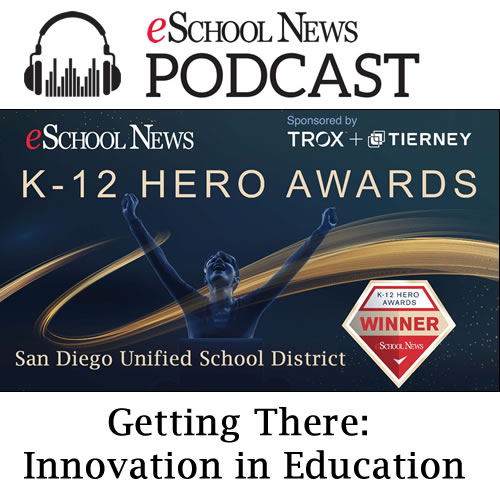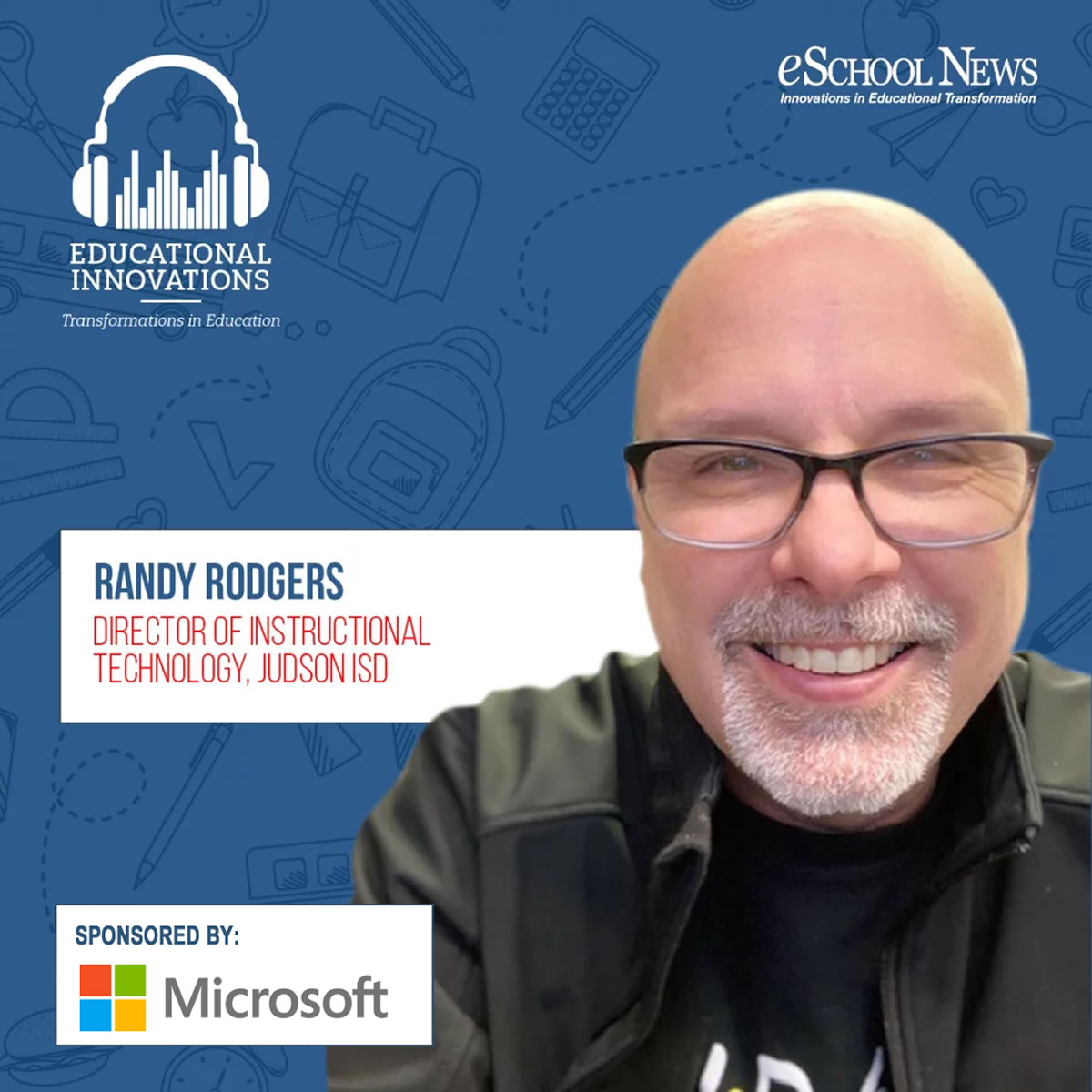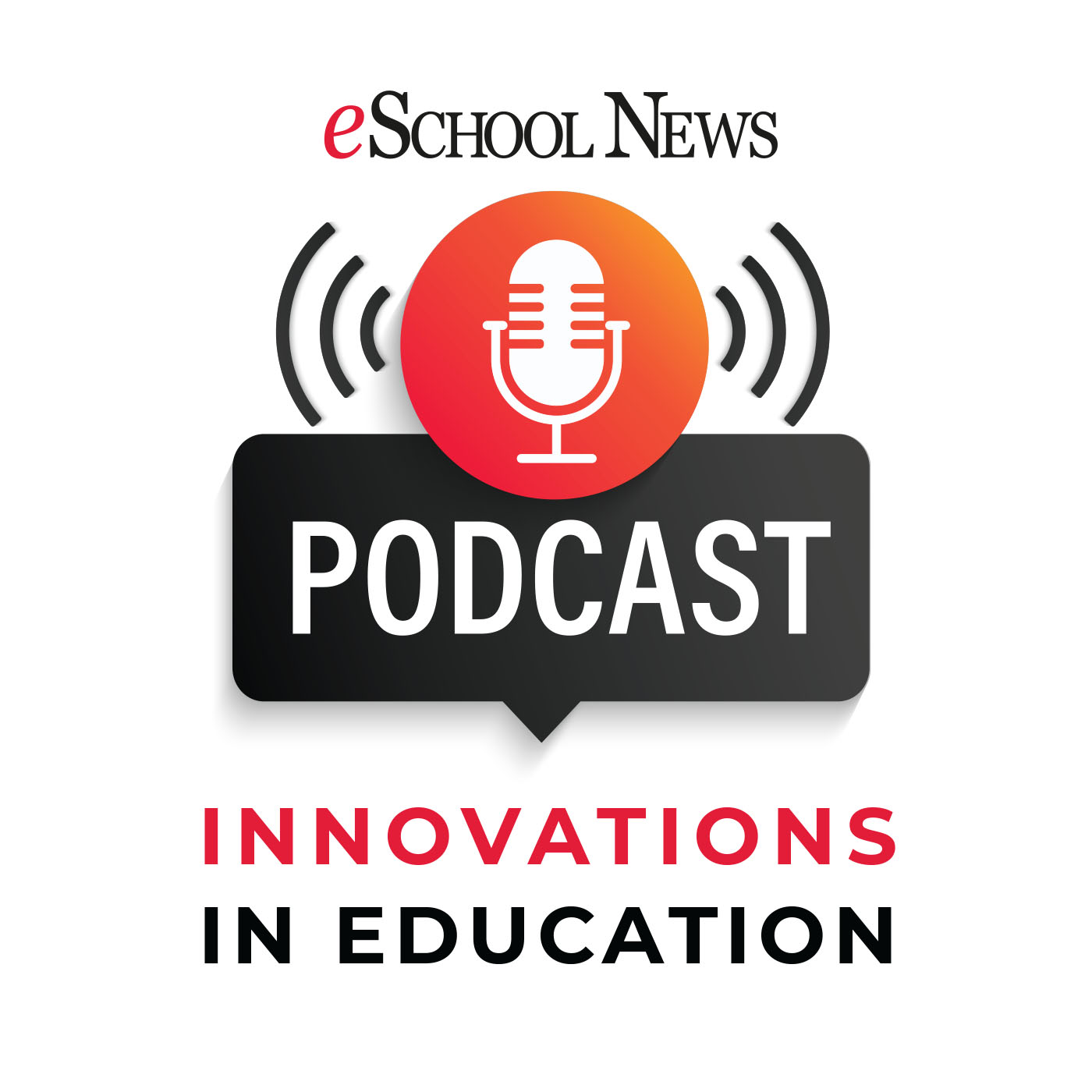Episode Transcript
Kevin Hogan
This episode of Innovations and Education is brought to you by Verizon. Verizon is a global technology leader with more than two decades of experience focused on the technology needs of K12 schools. The company serves as a trusted partner for thousands of schools across the US. Their ongoing collaboration with schools of all sizes gives them a unique perspective on the benefits of the evolving role of technology for student outcomes. Teams. From hybrid learning to cybersecurity to student safety and more. To find out more about Verizon's K12 education solutions, be sure to go to their website, verizon.com. OK. Hello and welcome to this E school news highlight reel of a recent webinar called Future Schools, the power of Connection. My name is Kevin Hogan. I am the content director for East School News, and I'm happy you're here too. Hey. I recently had the pleasure of hosting 3 senior technologists from Verizon who touched on a variety of topics over the course of an hour. Which includes cybersecurity, digital equity and the future of Ed Tech in general. While emphasizing Verizon's role in supporting schools through innovative solutions and reliable connectivity. They included Kim Mirabella. She is the vice president of business development at Verizon, Wes Withrow. He's a senior client partner at Verizon, and Scott Anderson. He's a distinguished architect at the company. While the next few minutes will give you a taste of the conversation, I encourage you to visit E school news and hit the webinar tab to find the title future schools, the power of connection up online. One of the first topics addressed in our conversation is the critical importance of cybersecurity in schools. Each of our panelists shared insights on the evolution of cybersecurity threats. The necessity of secure networks and the role of AI in future security measures. They all emphasize that reliable connectivity is essential for protecting students and ensuring safe digital learning environments. Here's a snippet. Right. Because there's there's kind of two sides to the coin when it comes to cyber security, right? I mean, there's the the ******** technical protections, the algorithms that are there, 222 party authentication, all all the various things that annoy users but protect their protect their data. And then there's the other side of the coin, which is uh. Human behavior? I mean it's it's not even necessarily about the technology, but it's about and this is where AI can kind of slip in here too. As that gets more sophisticated just fooling people into giving away passwords and getting in. Can you talk a little bit for our audience about what is there one that's more important than the other or. And is it in terms of strategies in terms of protection, where would you start?
Wes Withrow Senior Client Partner, Verizon
Maybe I'll jump in first. I'll do it kind of briefly because what we're seeing right now is a lot around social engineering defense, right? So you just mentioned a moment ago about, you know about just social engineering and just you know, for example, right, one of the things from the DB IR report is the median time. So it takes about less than 60 seconds for someone to actually. Click on a phishing e-mail for that tax. So imagine you know everyone within the educational system having emails from teachers, students and parents to being vulnerable just to one kind of, you know, social engineering attack through phishing. And so one of the areas where we help organizations get started is helping them understand kind of what the an overall social engineering defense plan is and then helping build capabilities around that. So starting with the specific use case and then building off of that use case to help them develop a strategy for the future.
Kim Mirabella Vice President, Business Development, Verizon
I'm just going to interject. I heard you use the DBIR report and just to share with everybody on the call, the DBI report is the data Breach investigation report. So Verizon has a very large security practice. But but what we do. Is we actually, we published a report every quarter that talks about like what are the latest tax right? What's the behavior of these bad actors? It's free, it's online back. What we'll do, we'll make it a point of sending that to everybody so that you have that, that post this call. But I would encourage you to read it, because it's everything from. Physical security, you know passwords, etcetera to walking away from your computer without locking it. Just simple things all the way to, you know, more sophisticated things that are happening in the industry and you know, companies like Verizon, we, we have more Internet traffic. You know, the majority of the world's Internet traffic. Versus Verizon at some point. So we have to be really careful about. Network security as a foundation, but then we've also built a whole practice around helping our customers with security as well. But it is a free resource and I just encourage you all to to access it. We'll make sure you have the link and use it as. You would like.
Kevin Hogan
Next, the group discusses the ongoing efforts to bridge the digital divide, which was only exacerbated in recent years by the pandemic. Verizon's initiatives, including providing low cost Internet plans and donating devices to socioeconomically challenged schools, aim to ensure that all students have access to the digital tools they need for their education. Have a listen. Also mentioned digital equity and about during the pandemic, that was another real topic, an issue that came to the forefront. You know, I remember interviewing. Tech directors back in April 2020. They were getting in their cars and driving and handing out hotspots to students where, like even in in districts where you would assume we're wealthy and that a certain percentage of this, the students would everyone would have access, they were allowed, who still didn't have it. And it really had made sure, you know, it it put that issue.
Kevin Hogan
MHM.
The front and center. So since that time, I know that Verizon has done a lot of work. Industry has done a lot of work in terms of trying to solve those issues. Maybe you can talk a little bit about what you've seen out there on the front line.
Kim Mirabella Vice President, Business Development, Verizon
Absolutely. And so during the pandemic, we connected over 1.5 million students with, you know hotspots jet packs if you will and in other other mediums. But essentially we found a couple of things. One, students weren't prepared right. I mean, just because you hand them a job pack doesn't mean they. Even know how to do? E-mail that's most kids don't know how to use e-mail. I mean, they just swipe right, especially your your primary grades, right? So those types of things and then, you know, the teachers weren't prepared. You know, many cases the teachers skewed. Older and, you know, we're shying away from technology and there were different types of technology platforms, you guys, you know, live through it first hand. But some of the key learnings really led us to a couple of different things. One from a network coverage perspective, we realized right that you know we're we were focusing our investment in our builds in major metropolitan areas. We realized that, you know, oh, my goodness, the connectivity needs are becoming more rural, becoming more suburban. And so we have to change our network infrastructure strategy a bit, right? We're still focused on major cities. Course. But you know, when you think about distance learning and learning from home, even from a homework perspective, right, kids are going to need access to the Internet. And if they have access, do they have the network coverage right. And making sure that that that's the case. And so we've really spent the last couple of years. Really shoring up the network and making sure that we're forecasting properly the needs moving forward, right, So what are the trends that we're seeing we're seeing, you know, certain populations of people move certain places, so that's. One thing. The other thing is we realize that, you know, not everybody can afford, you know, Internet. So we have actually launched some plans which we call digital inclusion and these are plans we make available to government agencies. So you know it can, it can be any schools can take advantage of these. Also higher Ed where there are needs in particular for, you know, lower income students. And so we have these digital inclusion programs. That will allow them to purchase a device at a very, very low cost and an an access at a very very low cost. And that's all done through our government program. The consumer side of the House that Verizon still has some plans available as well, but digital inclusion in the. And state education education space at Verizon. It's still running very, very strong and getting stronger every day. So like I said earlier on, a lot of these federal programs are drying up. A lot of the grants may not be. There. But the problem. Still there. So we at Verizon view this as part of our responsibility is to make sure that you know we're providing the best offers right to make sure that everybody has access. And then if you can't. Afford access at all. We're actually working with with the school system. We have a program called. Both the Verizon Innovative Learning schools and these are schools that are in areas that are socioeconomically challenged and what we'll do we'll we'll assess this has nothing. To do with sales at all, this is basically from the foundation and philanthropic area of Verizon. We actually identify those schools that have the most needs, and if the school qualifies and makes it into the program, we'll actually outfit every child with an iPad with complete 24/7 connectivity. So you can't do that with every. Cool, but certainly in lower income areas and strained socioeconomic areas, this is a program where the schools will can apply and we actually will select a school and go all in with technology in many. Cases where we. Would provide. We're providing like 5G labs etcetera. So the students get a real hands on feel for innovation. So you know, between the digital inclusion plans that are, you know, a low cost of entry plan, you know for students through you know the village program that takes it kind of to the other extreme and making sure that you know no child left behind, you know that's their goal even even the CEO of our company, Hans Vestberg is really passionate I mean. He's been involved in some worldwide forums to figure out how do we solve this problem because right now Internet access is just as important as food and water, and so we definitely want to do our part.
Kevin Hogan
And then to finish up, Scott Anderson envisions a future where AI and advanced network technology proactively manage and report on network concerns like cybersecurity threats in real time. Here's his take.
Scott Andersen Distinguished Architect, Verizon
As we look at the future, right, we look at what is AI going to bring to this network of the future. Imagine a time when. Your network notifies you that XYZ tried to attack the network about an hour ago. Now you think right away an hour. But the network also tells you, by the way we repulsed the Attack Attack by doing this, this and this. However, just go back and check and make sure that there aren't other ways that the attacker would be able to attack. In other words, the network is your security infrastructure. The network becomes your best buddy, your tool, your ultimate delivery vehicle for security within the organization. Because the network sees the traffic long before. Human. Well, I mean, I'm. I'm human. I know that I compete against AI systems all the time. Just trying to figure out how fast they are. I haven't won yet, and I'm not. You know, I'm not using big, high end LM's that are are running, you know, the entire Azure cloud as their back end. You know, just playing along with with the local versions of of various AI's, they're still faster than I am. They're also automated. And the one thing I mean and you know, if I had Wes on my security team, which luckily I do right. I would never be worried, but W does occasionally take naps. When Wes is napping, I don't have less of skills available. AI never naps.
Kevin Hogan
So that's about all we have for this episode of Innovations and Education. Once again, to listen to the entire webinar. Go to eschoolnews.com, hit the webinar tab. And find the title, future schools, the power of connection. I'm Kevin Hogan. Thanks for listening. This episode of Innovations and Education is brought to you by Verizon. Verizon is a global technology leader with more than two decades of experience focused on the technology needs of K12 schools. The company serves as a trusted partner for thousands of schools across the US. Their ongoing collaboration with schools of all sizes gives them a unique perspective on the benefits of the evolving role of technology for student outcomes. From hybrid learning to cybersecurity to student safety and more. To find out more about Verizon's K12 education solutions, be sure to go to their website, verizon.com.


